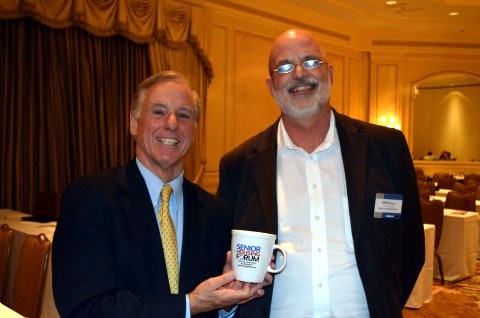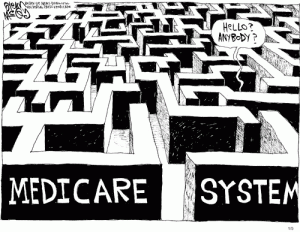I am not a big fan of Howard Dean, but I find myself 100% in agreement with him on how end of life decisions should be made.
While at NIC I got the “privilege” of hearing Howard Dean a well-known physician and politician speak on healthcare. If you are a regular reader of Senior Housing Forum, you have probably figured out that my politics lean a bit more to the right than the left. For this reason I found myself shocked to find myself in complete agreement with something Howard Dean said. Here is the gist of what he had to say:
The government ought to stay out of end of life decisions!
Here is where Dean and I agree:
- The government should not be providing incentives of any kind, to either encourage people to terminate their life early or to prolong life.
- The decision about end of life should be left only to the one approaching death and their families, in consultation with their chosen, not appointed, health care professionals.
- Those approaching death should be given realistic information on the likelihood that any end of life treatment will be effective not only in prolonging their life but providing an acceptable quality of life. And what constitutes an acceptable quality of life is so subjective and personal that it needs to be personal and not dictated or coerced.
- Those approaching death, along with their families, should be given a realistic assessment of the downside, the possible and often likely negative consequences of last ditch treatments and procedures. I.e. broken ribs from CPR, drug side effects, consequences of prolonged periods being bedfast.
- Most importantly, there should be no financial incentive for physicians and hospitals to engage in expensive longshot therapies that often bring pain and misery.
I worry that physicians mostly get a pass in this whole cost of healthcare debate. They are the ones that ultimately control the discharge of patients from hospitals to skilled nursing and to assisted living. They are largely the ones who make the decision about readmitting patients to the hospitals. They also have great influence, if not control, over the end of life medical decisions that patients and families make. I have seen in my own life too many instances where expensive surgical interventions where urged on families and patients themselves, where the probability of extending the patient’s life might have approached 50%, though typically for only hours, days or weeks, and the probability of increasing pain and suffering was near 100%. The line that gets used goes something like this, “I am not sure it will help, but this is the only chance your parent has. . .” Physicians have two problems. The first is that they are taught to do all that they can. The second is that, when they do that low odds surgery or procedure, it means more money in their pocket and more money in the pocket of the hospital. I believe that if physicians and hospitals did not receive anything above costs for these end of life procedures, they would approach families with a more realistic picture of both what could be done and what should be done. There is often a huge difference between what physicians want in their own lives and what they recommend for their patients and this should not be. Ask a physician you trust what they want directing their end of life care. (See WSJ: Why Doctors Die Differently). As senior living providers we don’t have much control over these things, but if we are doing a great job and being friends with our families and residents we can help them take a realistic look at options. Steve Moran
If you like this article it would be a great honor to have you subscribe to our mailing list HERE.









Steve, I agree with both you and Howard Dean. I would expand on the first and last bullet points to say that the government should not provide any financial incentives to any health care providers that would encourage them to terminate life early.